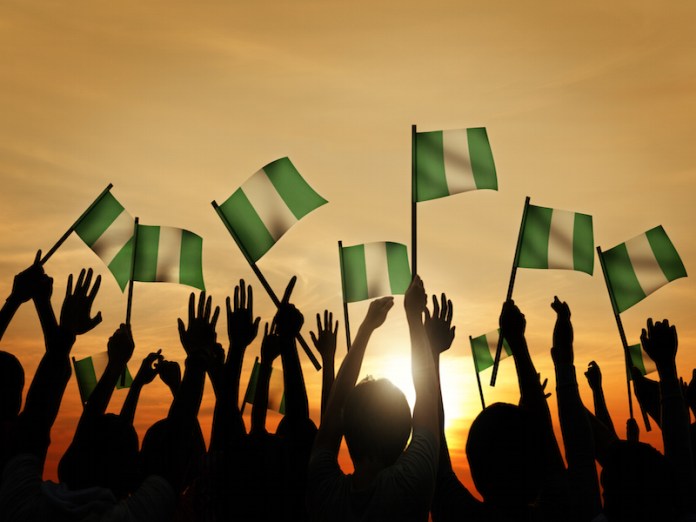- Nigeria 95th Happiest Country Globally, 6th in Africa
Nigerians are Africa’s sixth happiest people, according to a new report released on Monday that called on nations to build social trust and equality to improve the well-being of their citizens.
Algeria leads the rest of Africa in happiness, followed by Mauritius. Strife-torn Libya is surprisingly ranked third, ahead of Morocco. And even a bigger surprise, another crisis-torn nation, Somalia is Africa’s fifth happiest country ahead of Nigeria and South Africa, ranked 7th. Tunisia is eighth and Egypt ninth, while Sierra Leone is tenth.
At the bottom ten are Benin, Madagascar, South Sudan, Liberia, Guinea, Togo, Rwanda, Tanzania, Burundi and the worst of them, Central African Republic.
On the global stage, Norway displaced Denmark as the world’s happiest country
The Nordic nations are the most content, according to the World Happiness Report 2017 produced by the Sustainable Development Solutions Network (SDSN), a global initiative launched by the United Nations in 2012.
Countries in sub-Saharan Africa, along with Syria and Yemen, are the least happy of the 155 countries ranked in the fifth annual report released at the United Nations.
“Happy countries are the ones that have a healthy balance of prosperity, as conventionally measured, and social capital, meaning a high degree of trust in a society, low inequality and confidence in government,” Jeffrey Sachs, the director of the SDSN and a special advisor to the United Nations Secretary-General, said in an interview.
The aim of the report, he added, is to provide another tool for governments, business and civil society to help their countries find a better way to wellbeing.
Denmark, Iceland, Switzerland, Finland, Netherlands, Canada, New Zealand, Australia and Sweden rounded out the top ten countries.
Germany was ranked 16, followed by the United Kingdom (19) and France (31). The United States dropped one spot to 14.
Sachs said the United States is falling in the ranking due to inequality, distrust and corruption. Economic measures that the administration of President Donald Trump is trying to pursue, he added, will make things worse.
“They are all aimed at increasing inequality – tax cuts at the top, throwing people off the healthcare rolls, cutting Meals on Wheels in order to raise military spending. I think everything that has been proposed goes in the wrong direction,” he explained.
The rankings are based on six factors — per capita gross domestic product, healthy life expectancy, freedom, generosity, social support and absence of corruption in government or business.
“The lowest countries are typically marked by low values in all six variables,” said the report, produced with the support of the Ernesto Illy Foundation.
Sachs would like nations to follow United Arab Emirates and other countries that have appointed Ministers of Happiness.
“I want governments to measure this, discuss it, analyze it and understand when they have been off on the wrong direction,” he said.
According to the report, “the average ladder scores for over four in five African countries are below the mid-point of the scale. And only two African countries have made significant gains in happiness over the past decade . There are also considerable inequalities in life evaluations in African countries, and this inequality in happiness has increased over the past years” .
The report also shows that Africans are optimistic about the future, with Nigerians the leaders in this regard.
“The majority of African countries rate life at present below the mid-point of the Cantril ladder scale in the latest available Gallup World Poll.
“This is not the case for average future ratings. Projected ladder ratings in five years’ time are uniformly higher than present evaluations across all countries on the continent. In fact, the percentage increase in future expectations of life is often higher among some of the least contented nations.
“Nigeria’s track record of such positive expectations is well documented. Cantril’s 1960s study already reported a difference of 2.6 points between the country’s average present (4.8) and future (7.4) ladder ratings.
“Similarly, in 2016, there is a difference of 2.9 points between Nigeria’s present (5.3) and future (8.2) ratings in the Gallup World Poll. An international study of comparative ladder ratings in ten countries with large populations, including China, India and the United States, found Nigeria’s 2.6 point difference between present and future ratings to be by far the largest.83 Nigeria’s spirit of optimism may be exceptional by world standards, but not in Africa.”


 Forex3 weeks ago
Forex3 weeks ago
 Naira3 weeks ago
Naira3 weeks ago
 Billionaire Watch2 weeks ago
Billionaire Watch2 weeks ago


 Naira3 weeks ago
Naira3 weeks ago




 Naira2 weeks ago
Naira2 weeks ago




 Naira1 week ago
Naira1 week ago




 Naira4 weeks ago
Naira4 weeks ago
 Banking Sector4 weeks ago
Banking Sector4 weeks ago























